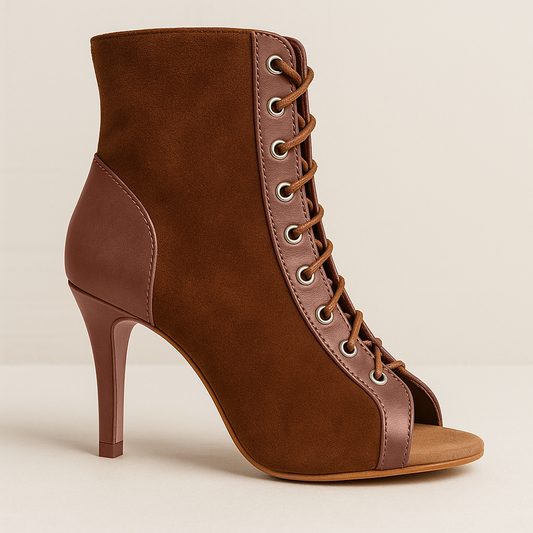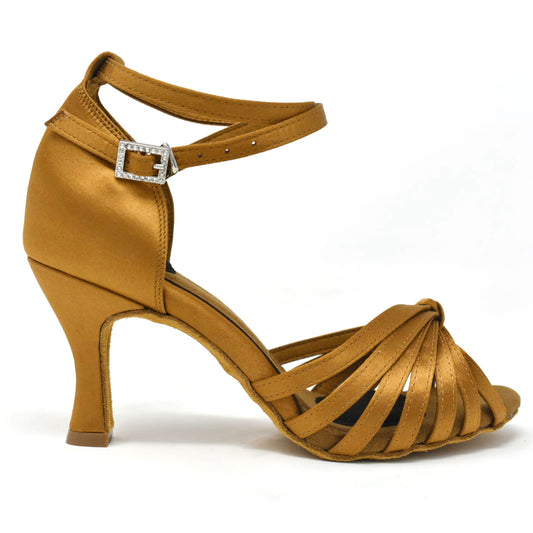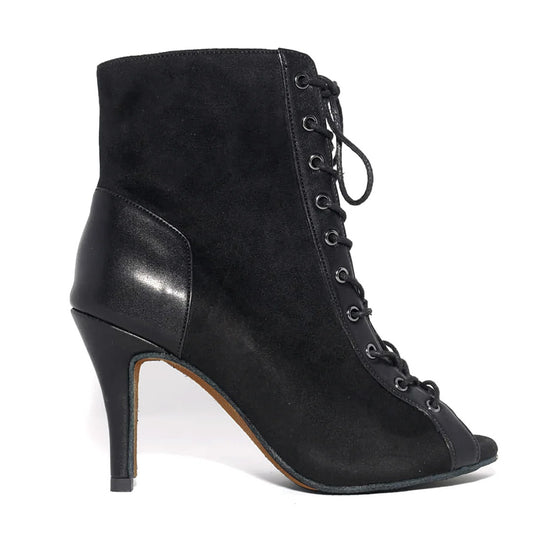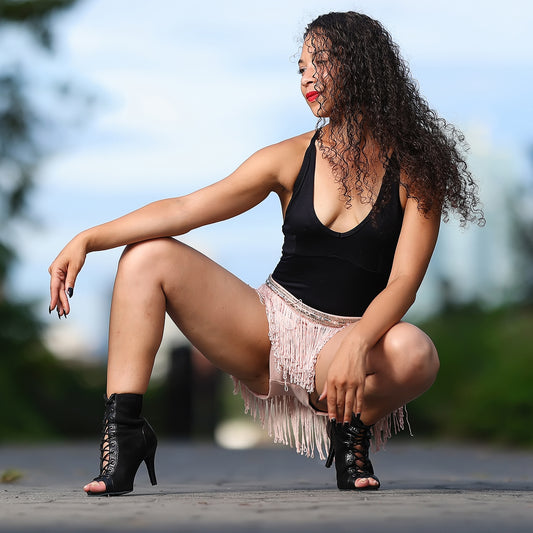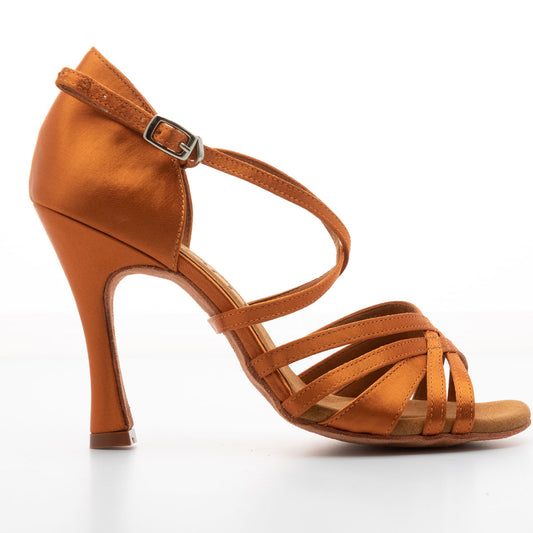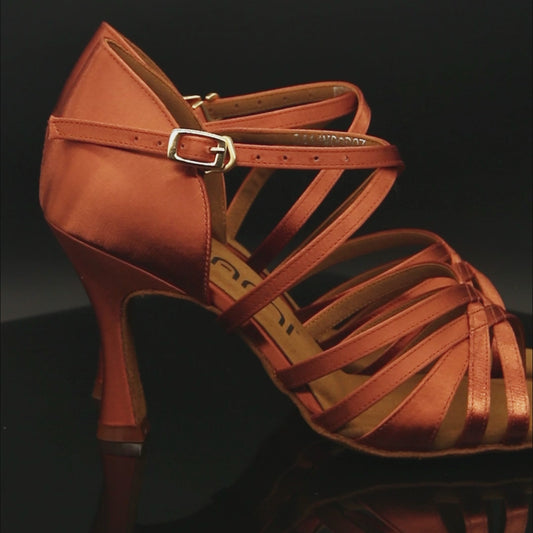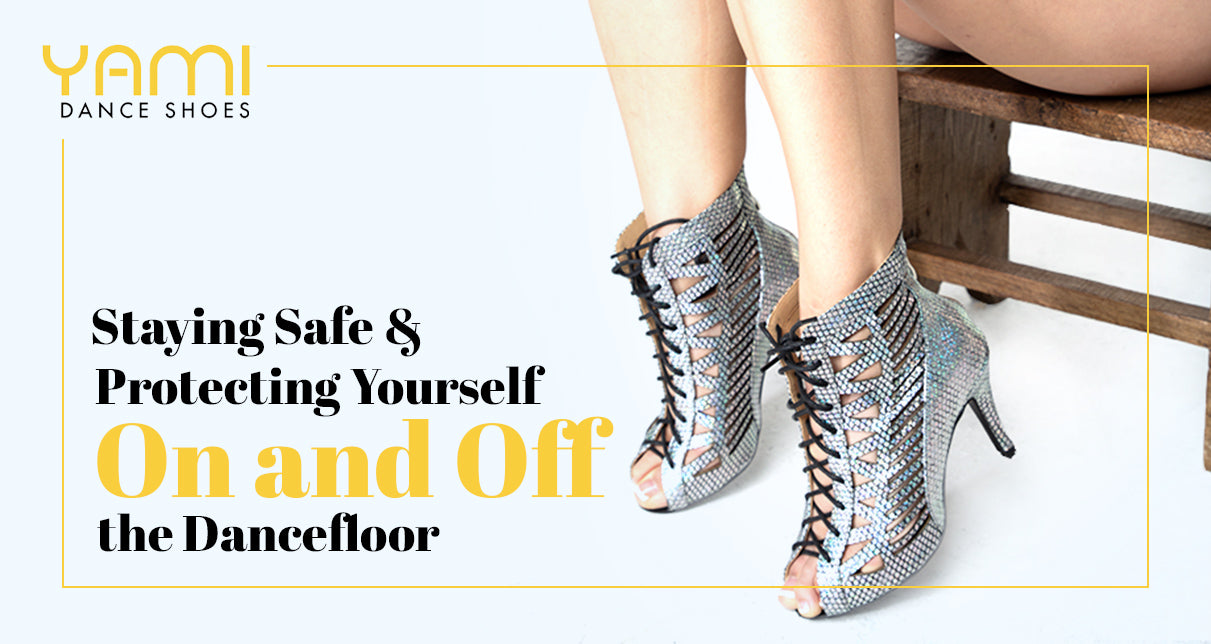
Latin dance - especially Bachata, Salsa, or Kizomba - is all about fiery passion, sensuality, and yearning. All of these strong emotions are translated on the dance floor with intimate dance moves. This goes especially for Bachata because of the variety of leads used in the dance.
The close contact, sensual music, fluid movements, and the romantic nature of Latin dance itself make it easy for the hands to land in places they’re not supposed to. And most times, it’s hard to tell if the “accident” is done intentionally or by mistake.
When Dancing Turns to Groping
Sadly, there are people who interpret sensuality and closeness as an invitation to make physical advances. No matter how lost you are in the music or the intimate dancing, there is no excuse for unwanted and inappropriate touching. This goes even when you feel a mutual attraction with your dance partner, be respectful of your dance partner at all times.

Unfortunately, that’s not the case with some people and it’s common for some creeps to take advantage of the situation. This is the reason why it’s so important to learn how to protect yourself from predatory behaviors and staying safe on and off the dance floor.
How to Stay Safe on the Dance Floor
Point it Out
Is your dance partner trying to cop a feel? If your partner is getting handsy, don’t be afraid to speak up. Talking about it or confronting the offending party might make you feel uncomfortable but it’ll be clear that you know what your dance partner is trying to do and hopefully it stops.
If your partner's hands are landing in places they shouldn't, look him in the eye, smile and say, “please keep your hands here (place his hands on the appropriate places) and let's just dance.” Most dancers will get the message and be on their best behavior - assuming that they were trying to flirt with you.

On the other hand, if your dance partner is crossing the line and he doesn’t seem to be listening to your pleas, talk to the event organizer, dance teacher, or other community leaders about the situation. Everyone in the event deserves a good time and no one should feel uncomfortable with a handsy dance partner.
Verbalize Your Discomfort
Sometimes all you need is to show a physical cue to let your dance partner know how you feel. If, for example, too much closeness bothers you, you can move slightly away to give each other room. If your partner cares about your feelings, he’ll get the message.
But there are times when physical cues go unnoticed or misunderstood. That’s when you have to verbalize your feelings so the other party gets the message. Saying something like “I’m getting uncomfortable at this closeness, let’s open up some more,” or “can you please put your hands on my shoulder blade instead of my waist?” Smile and say thank you when your dance partner kept his movements in check to make you feel more comfortable.

Use the Buddy System
There is safety in numbers. Having a friend with you on social dances certainly helps in avoiding predatory behaviors on and off the dance floor. Take your girlfriends with you and let them know ahead of time when you're planning to leave, how, etc. Agree that your friends should check up on one another if someone's not showing up at the agreed time.
Planning to drink? Be sure that one of your buddies is the designated driver or make plans to call an uber/taxi ahead of time. If a buddy is leaving with someone you do not recognize, take a moment to talk to your friend alone. Ask her if she's alright, check if she drank too much (if she did, walk with her, or find a trusted male friend to walk with her) and don’t let her out of your sight until she’s safe. If a dancer known for his predatory behavior is making moves on newcomers, warn them by introducing yourself and giving a heads up.
Watch Your Alcohol Intake
Most cases of sexual assault involve victims that are so inebriated, they could not give consent. Social drinking is acceptable but keep your alcohol consumption in check during social dances - or any social events for that matter.
If someone you don't know hands you a drink, be polite, say thanks but do not drink it. Do not leave your drinks unattended. In the unfortunate event that you drank a spiked drink, ask a friend for help or reach out to the event staff/security/community leader immediately.

Don’t Be Intimidated by (Sleazy) Regulars
Social dances are teeming with dancers who might have a reputation for being pushy, sleazy, or downright creepy. Most times, they will use their experience to intimidate their dance partners, particularly newcomers. Do not let yourself be pushed into a situation that you are not comfortable with. Be assertive, it’s okay to say no when you feel unsafe.
In the same manner, there are experienced dancers who are known to lay the compliments thickly to “coax” their dance partner into submission. Be wary of these people. Don’t be swayed by generous attention, compliments, or invitations for “private lessons.”
Social dancing is all about having good, clean fun. It’s a celebration of dance and music. No one deserves to feel unsafe or taken advantage of during these events. It’s okay to stop in the middle of the dance if you are being taken advantage of.
If you feel unsafe in any way, remove yourself from the situation and report the offending party to the organizer. It’s our job to protect our community from sexual predators. By reporting these incidents, you are keeping the community free from sexual harassment and saving potential assault victims.
References
https://delta.dance/2019/02/5-essential-rules-for-ballroom-dancers/
http://socialdancecommunity.com/when-dancing-becomes-groping-time-to-clean-up-the-dance-scene/
http://socialdancecommunity.com/when-uncomfortable/
http://socialdancecommunity.com/a-dance-event-organisers-guide-to-sexual-harassment-and-assault/
https://interfusionfestival.com/confronting/
https://www.dancecompreview.com/how-to-protect-your-body-on-the-dance-floor/


